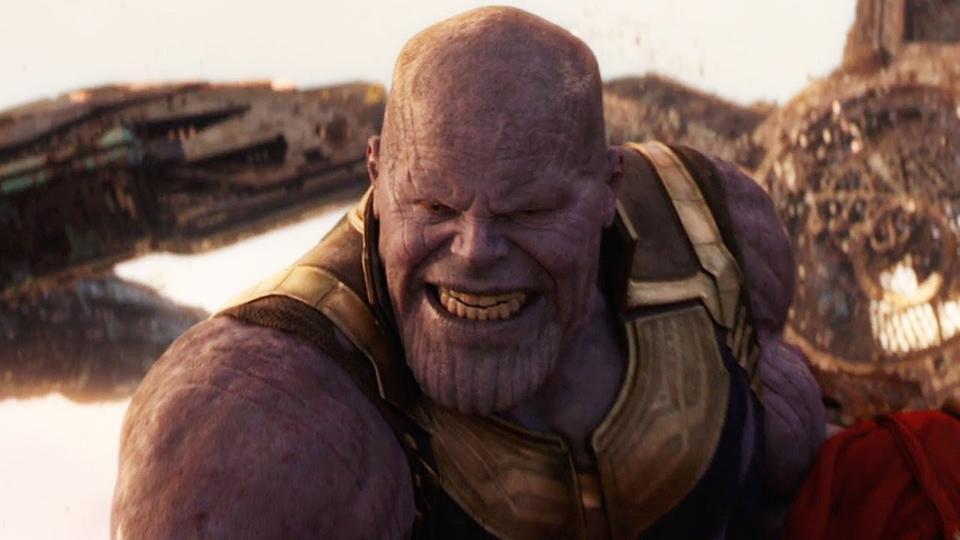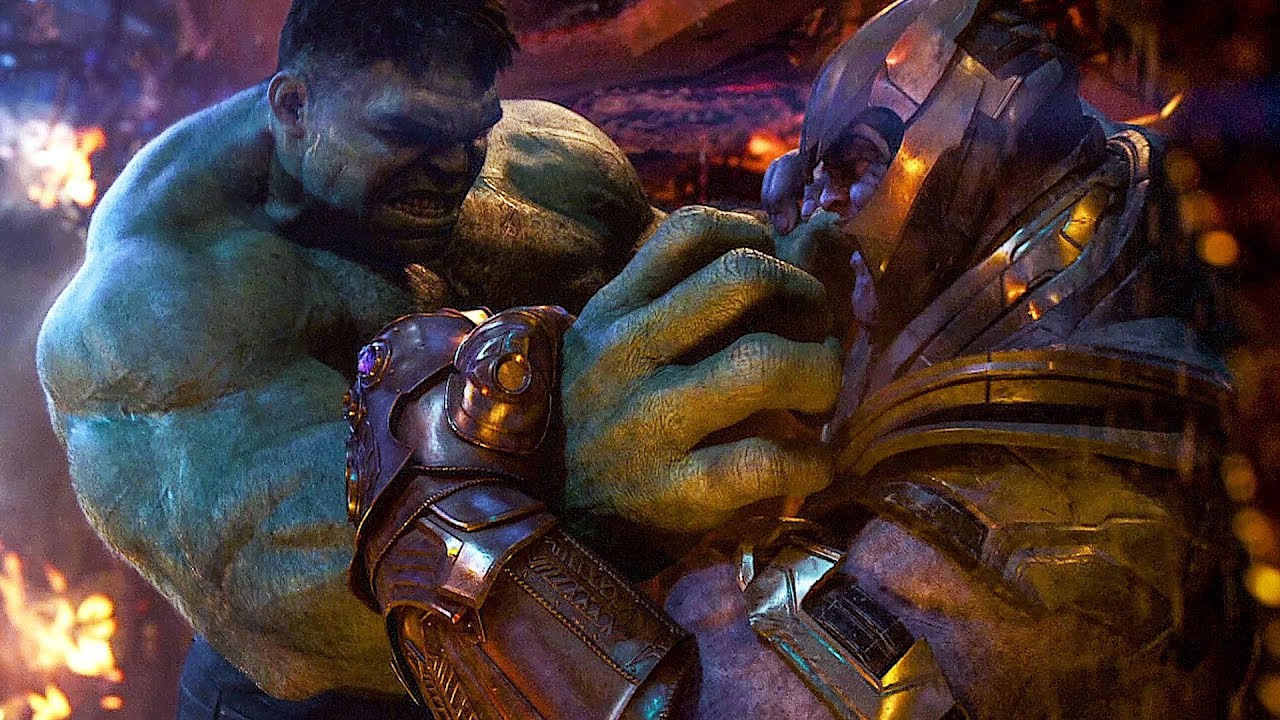I’ll be honest. Heading into Avengers: Infinity War, I was worried that Marvel would bastardize Thanos. I know, I know, up to that point, the Russo brothers (directors) had given us two note perfect movies in The Winter Soldier and Civil War. But I couldn’t help but think back to Joss Whedon’s Age of Ultron, in which Ultron turned out to be completely different from the menacing figure he was presented in the trailers. If Thanos ended up being another one-liner spewing snarky comedian, you can bet, riots would’ve ensued.
After all, we’ve been slowly laying the groundwork to Thanos for a decade now and anything other than AMAZING would’ve been a disappointment. Thanos needed to be a menacing figure. Thankfully, within the opening five to 10 minutes of the film, my initial worries subsided. Thanos is a bloody great villain. And it isn’t just because of Josh Brolin’s stellar voice acting, but also Markus and McFeely’s masterful writing of this layered character.

Even for someone who is very much in tune with everything that goes on in the world of movies, the end of Infinity War was paralysing. Yes, I knew walking in, that the film is merely part 1 of a two-part finale. Yes, I predicted that Thanos would be the victor. No, I did not expect the 19th entry into the Marvel Cinematic Universe to play out and conclude the way it does, with half the Avengers turning to dust and Thanos enjoying early retirement and watching the sunrise.
Below I analyse what makes Thanos MCU’s best villain to date!
Brute strength
The film opens with Thanos and his minions, ‘Children of Thanos’ (Black Order in the comics), standing amongst a ton of slaughtered Asgardians. Even the God of thunder, Thor, is beaten to a pulp. After delivering a spine-chilling monologue, Thanos proceeds to punch the living daylights out of Hulk in an exhilarating action sequence, directed in a manner that you feel the weight of every punch dished out.
Writers Markus and McFeely smartly include the popular “We have a Hulk” line from The Avengers — then said by Tony Stark, here, by Loki. Not only is this line a funny callback, but it also immediately establishes that Hulk will not be the easy solution to the problem like he was in The Avengers.
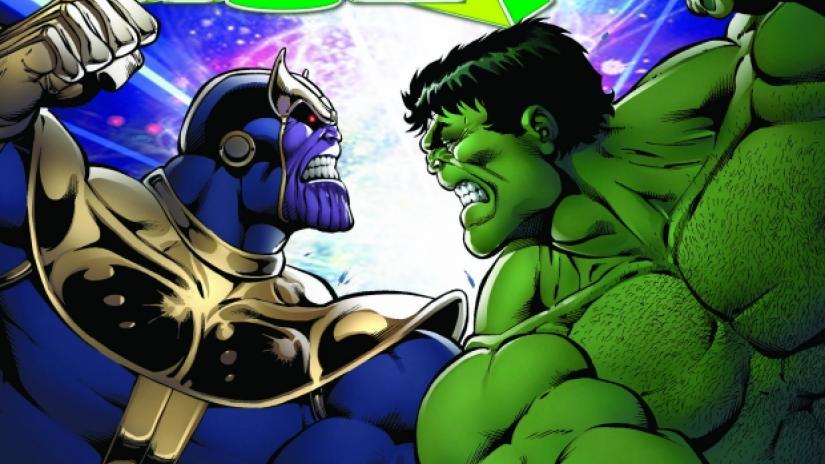
After laying the smackdown on Hulk, Thanos turns his attention to Thor and Loki. He tortures Thor, procures the Infinity Stone from Loki and then chokes him to death. The audience in the cinema gasp! Yes, Thanos kills off a popular MCU character at the start of the movie. The Russos don’t over-dramatize the scene, indicating that there’s plenty more where that came from.
In the opening scene alone, the film establishes that Thanos is a villain who does not screw around. Just from a physical prowess standpoint, he’s unlike any antagonist The Avengers have faced before. With or without the Infinity Stones, he is just that much stronger than everyone else. Simply by showcasing Thanos’ brute strength, the stakes already feel very, very real.
We wanted Thanos to be a menacing, no-nonsense figure who’s able to crush your bones like it’s a piece of twig. And he is. But what I did not foresee, is for writers Markus and McFeely to also give us a layered and complex villain that is more than just ass whooping.
A philosophy that makes sense
Thanos is hellbent on procuring all six Infinity Stones so that he’s able to wipe out half the galaxy with a snap of his fingers. Yet, unlike your typical moustache twirling baddie, Thanos doesn’t want to wipe out 50% of all living creatures in the name of world domination.
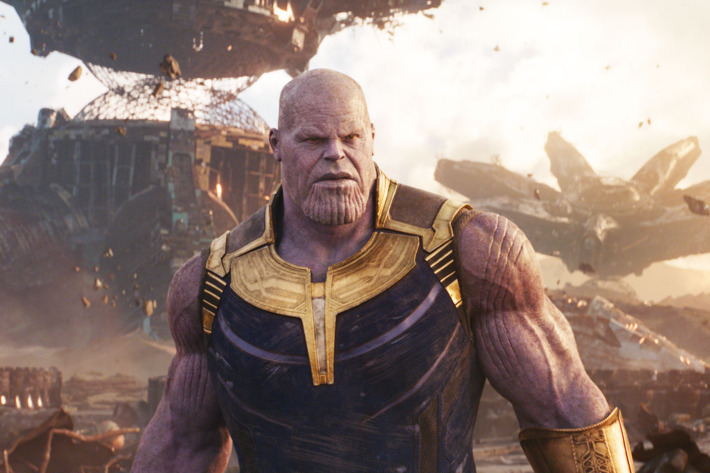
He’s is an antagonist who’s convinced that his actions aren’t wrong. Thanos firmly believes that his genocidal tendencies are for the greater good — a necessary evil. In an exchange of dialogue with Gamora, he talks about overpopulated civilizations that suffer because there are limited resources to go around, and that he’s the only one who’s brave enough to do anything about it.
“It’s a simple calculus. This universe is finite; it’s resources finite. If life is left unchecked, life will cease to exist. It needs correction and I’m the only one who knows that. At least, I’m the only one with the will to act on it.” – Thanos
When you sit down and think about it, he’s right. Even in the real world, our resources are running dry because of our own misdeeds, yet people do not care. Killing off half the population would solve that problem, purely from a mathematical and logical perspective. But of course, genocide and mass murder aren’t humane, so we don’t do it. Thanos’ methods may be barbaric, but his end goal is something many of us think about and can relate to.
Thanos is a fascist who emphasizes the group, the nation or in this case, the galaxy, while discounting individual rights. But unlike many notable real-world fascists like Hitler and Mussolini, Thanos isn’t a racist, nor does he think one religion is superior to the other. His idea has always been to wipe out half the population fairly, without looking at age, sex or race or financial status. He genuinely wants to bring balance to the universe.
Thanos isn’t interested in power
Thanos feels that restoring balance to the universe is his destiny; His emotions and facial expressions tell us that it’s also a burden. When Doctor Strange asks him what he would do after erasing half the population, Thanos doesn’t laugh an evil laugh and say he wants to sit on the proverbial Iron Throne. On the contrary, he says would be finally at peace, kicking back and enjoying the sunrise on a “grateful planet.” Not exactly the actions of someone who’s obsessed with power.
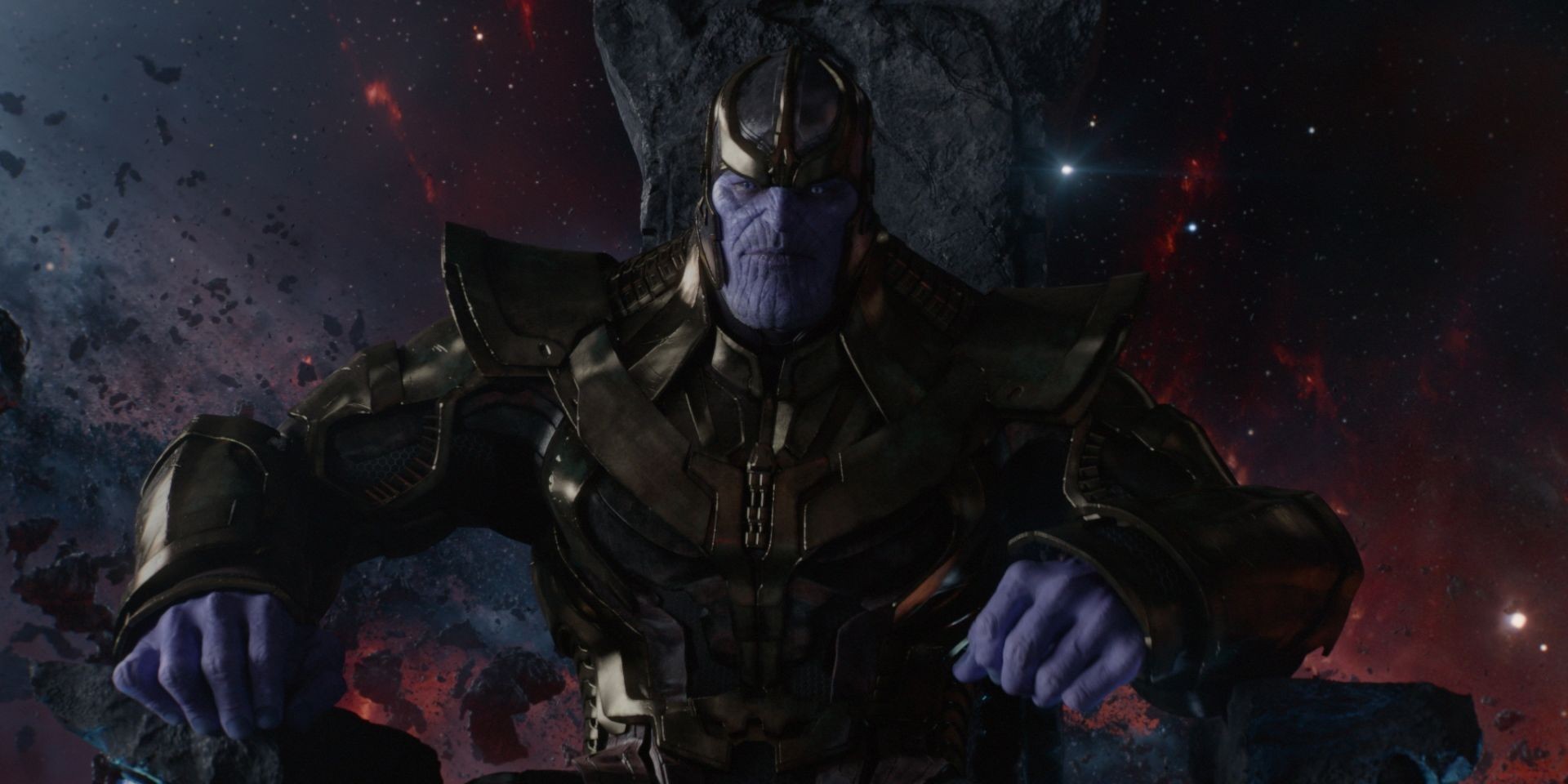
Notice that he also isn’t interested in killing individuals in cold-blood, unless he sees that he doesn’t have a choice. He could’ve killed Hulk and Thor at the start, he doesn’t. When Drax and Mantis run towards him, he could have killed them too, instead, he uses the Reality Stone to paralyse them. He could’ve killed Iron Man on Titan, but he just teleports away upon retrieving the Time Stone from Doctor Strange.
And at the climactic sequence, he could have killed many of The Avengers who tried to stop him from retrieving the Mind Stone from Vision, but he doesn’t, choosing instead to knock them out. The only two individuals he actually murders in cold blood are Loki — because Loki was being too smart — and Gamora — because he needed to sacrifice her for the Soul Stone.
Many will argue that Thanos didn’t kill many of the characters because the plot needed them to be alive, but I push back on that idea. I think it’s another case of smart writing by Markus and McFeely, who took a character that could have been a one-dimensional bulldozer and fleshed him out. Thanos doesn’t find pleasure in what he feels he has to do.
At the climax, when Thanos snaps his fingers and wipes out half the universe, he sees young Gamora (not a hallucination, but that’s a story for a different article), who asks him what it costs to achieve his goal. To which Thanos replies, “everything.” He understands the consequences of what he has done and more importantly, he understands all that he has lost along the way. But in his head, he had no other choice.
He has a heart
Thanos is also interesting because he’s a loving father? Err… what?! That’s right, much to everyone’s surprise, including and especially Gamora, the purple megalomaniac actually has a heart. Who would’ve guessed?
While I found the first half of Avengers: Infinity War to be a mixed bag, there are sprinkles of greatness. At the centre of that is character-driven drama revolving Thanos and Gamora. It culminates in a shocking and emotionally harrowing sequence on the planet Vormir, where Thanos goes to attain the Soul Stone, dragging Gamora along with him.
When they arrive on Vormir, they’re greeted by, surprise surprise, Red Skull, who was thought to be dead in Captain America: The First Avenger. Red Skull, who has now been cursed by the universe and placed on Vormir to guard the Soul Stone, tells Thanos that the only way to retrieve the Soul Stone is by making the ultimate sacrifice: The one you love — a soul for a soul.
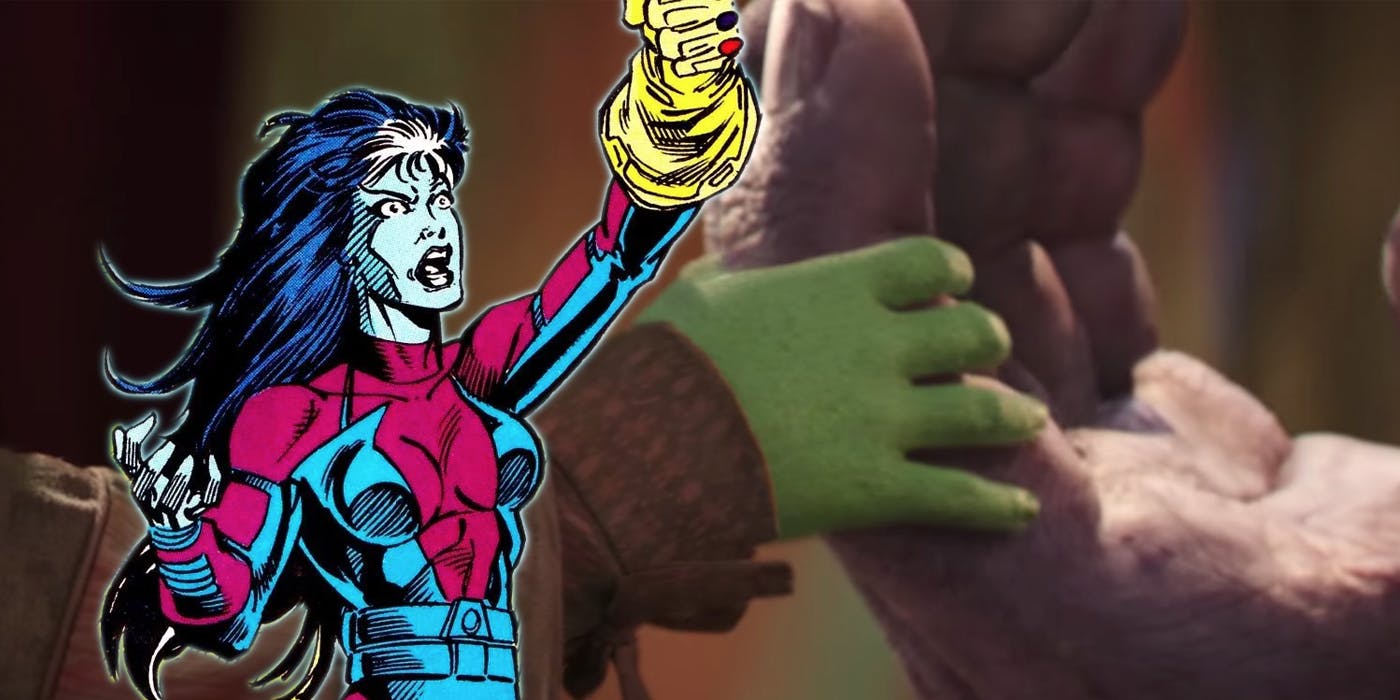
Gamora laughs when she hears this. She thinks that Thanos is a cruel psychopath incapable of love and as a result, unable to make the sacrifice and get the stone. The good guys win, right? Wrong. In an unexpected turn of events, Thanos turns and faces Gamora, with tears flowing down his cheek. He tells Gamora he’s sorry, but he cannot let destiny escape him again, before tossing her down the cliff in exchange for the soul stone.
This humanizes Thanos even further. Not only does he want to eradicate half the population for the greater good (in his mind), he also genuinely loves his daughter. Markus, McFeely and the Russo brothers keep outdoing themselves. Some people argue that this scene feels forced, as nothing up to that point indicates Thanos’ love for Gamora. I half agree. Thanos doesn’t blatantly say, “I love you,” nor does he jump in front of a moving truck to save her, but with the Russo brothers, it’s all about the minute details.
As we first learned in Guardians of the Galaxy, Gamora is Thanos’ adopted daughter. Here, we discover how that came to be in a gut-wrenching flashback sequence. Many, many years ago, Thanos invaded Gamora’s home planet, Zen-Whoberi, and butchered half the population, including Gamora’s mom. But prior to that, he takes Gamora aside and talks to her. When Thanos’ men begin gunning down citizens, Thanos doesn’t allow little Gamora to look, showing her a knife trick as a distraction. If Thanos is truly a heartless asshole who enjoys torturing people, wouldn’t he have forced Gamora to watch her friends and family die, instead of turning her away?
A dramatic flair
One thing I found particularly interesting about Thanos is that he does take some enjoys toying with his enemies and is always curious to see how things play out. This happens five times throughout the film, in three different scenes.
When Hulk first jumps on Thanos in the opening sequence, it seems like the green badass has the slight edge. Thanos actually takes a beating. But when Cull Obsidian (Black Dwarf in the comics), one of the members of the Black Order, takes a step forward to assist Thanos, the leader of the Black Order, Ebony Maw says, “Let him have his fun.” And before you know it, Thanos flips the script and beats the crap out of Hulk. Hulk never stood a chance. Thanos was simply toying with him, much like how Clubber Lang toyed with Rocky in their first fight.
We see this again in the same scene, this time with Loki. Thanos doesn’t need a guide, nor does he need an additional member to join his team, yet he allows Loki to blabber anyway, simply because he’s curious to see how things would play out. When Loki tries to outsmart him, Thanos kills him. Not only did Thanos prove that he’s stronger than Hulk, but he also proves that he’s smarter than the God of Mischief. Thanos is always one step ahead of everybody.
Later on Knowhere, Gamora successfully kills Thanos. She breaks down in tears — he is her father after all — and we’re sitting in the cinema wondering wtf is going on. Did the Russo brothers just pull a Rian Johnson and kill off the big baddie? Only a few seconds later, we hear Thanos’ voice. We see his body disappear and Knowhere in ruins. Thanos used the Reality Stone to create a hyper-realistic illusion, just to see how Gamora will react if he’s dead. He didn’t need to do that. After all, he could’ve taken Gamora away even without the theatrics.
Later in the scene, he carries out a similar test, this time on Star-Lord. Earlier in the movie, Gamora makes Star-Lord promise that he’ll kill her if she ends up in Thanos’ clutches. Thanos pushes Star-Lord to do it, calling him unreliable. He drags Gamora right in front of Star Lord’s gun. “Do it!!” he screams. At first, Star-Lord hesitates, but eventually, he realizes that he has to do it for the sake of the universe. In tears, he tells Gamora he loves her and then pulls the trigger. Except bubbles come out of the gun, courtesy of Thanos’ Reality Stone. If Thanos was never going to let Gamora die, why push Star-Lord to do it? Because he simply wants to see how things play out.
Finally, we see it once more at the end of the movie with Thor. Immediately after Thanos procures all the stones, Thor throws his newly forged axe, Stormbreaker, at Thanos, stabbing him in the heart. Thanos grunts in agony. He’s clearly in pain, on the verge of death. After a few seconds of suffering, Thanos looks at Thor, grins and says, “You should have gone for the head,” once again highlighting that he’s just curious to see how things play out.
He actually wins
We have seen bad guys closing out a movie as victors before. Films like One Who Flew Over the Cuckoo’s Nest and Silence of the Lambs come to mind. But how often do we see this in fantasy, Sci-Fi, and giant blockbusters? In The Lord of the Rings, the protagonists are victorious at the end of all three movies; In The Dark Knight, Batman defeats The Joker and he’s sent to jail (Batman even sacrifices himself and prevents the clown prince of Gotham to win on a philosophical level). But here, just like in Empire Strikes Back, the antagonist actually WINS. Perhaps it’s even more apparent here than in Empire Strikes Back.
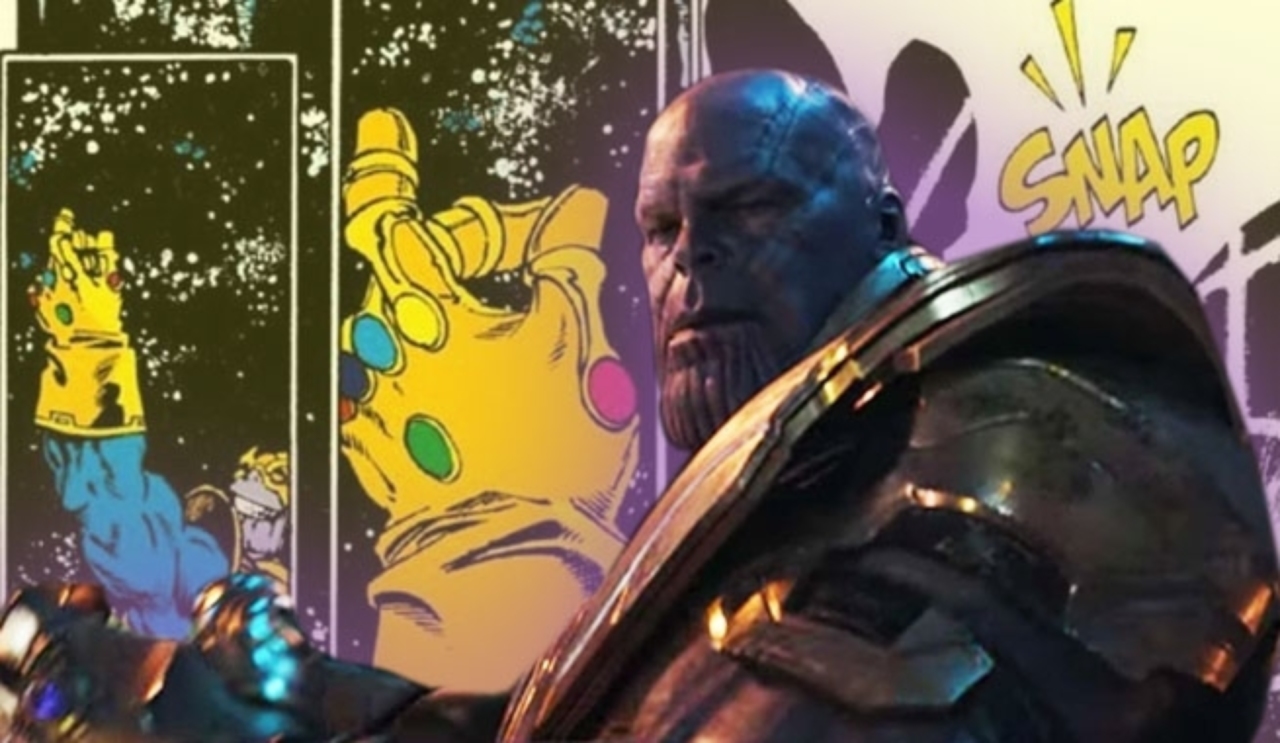
At the start of the movie, Thanos is on a mission to collect all six Infinity Stones and wipe out half the universe in the name of “balance.” He says that once he completes his mission, he will finally rest and watch the sunrise on a grateful universe. At the end of the movie, he does exactly that: Snaps his finger, kills trillions of people and then retreats to Hawaii to watch the sunrise, leaving our heroes and audience members in a state of confusion and sadness.
Thanos did it. He won, at least for now.
Thanos is interesting because his actions, however cruel they may be, makes sense. We root against him because he harms the heroes we have come to love; We root against him because he commits murder, but at the same time, his motivations are clear and we understand exactly where he’s coming from.
Follow us on Instagram, Facebook, Twitter or Telegram for more updates and breaking news.


